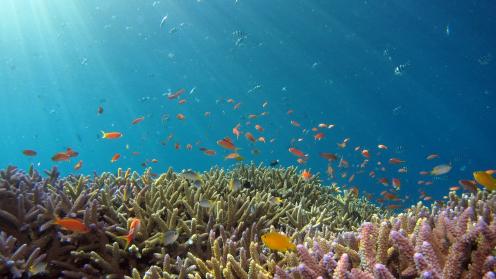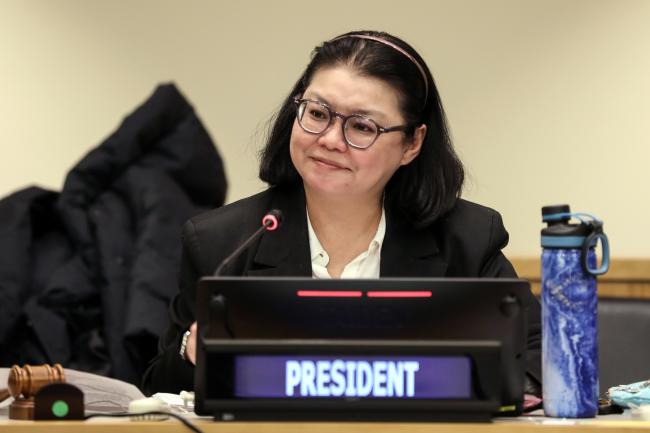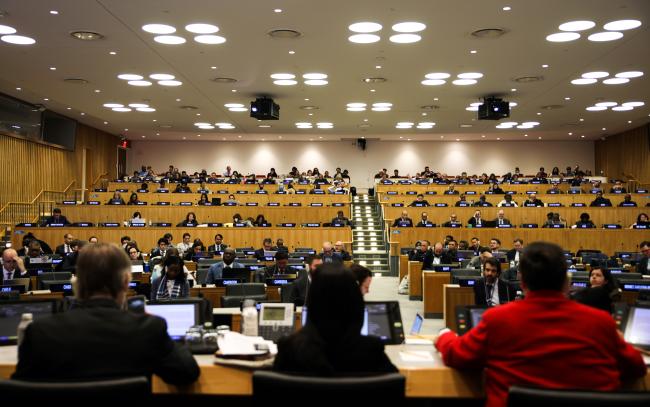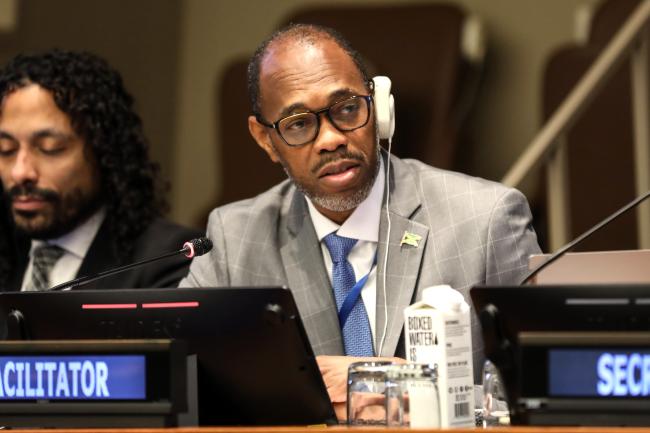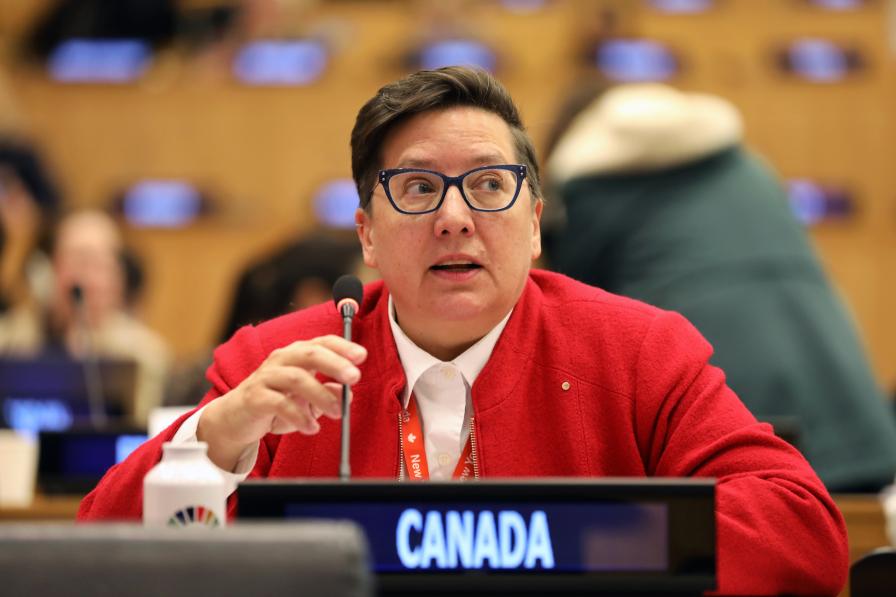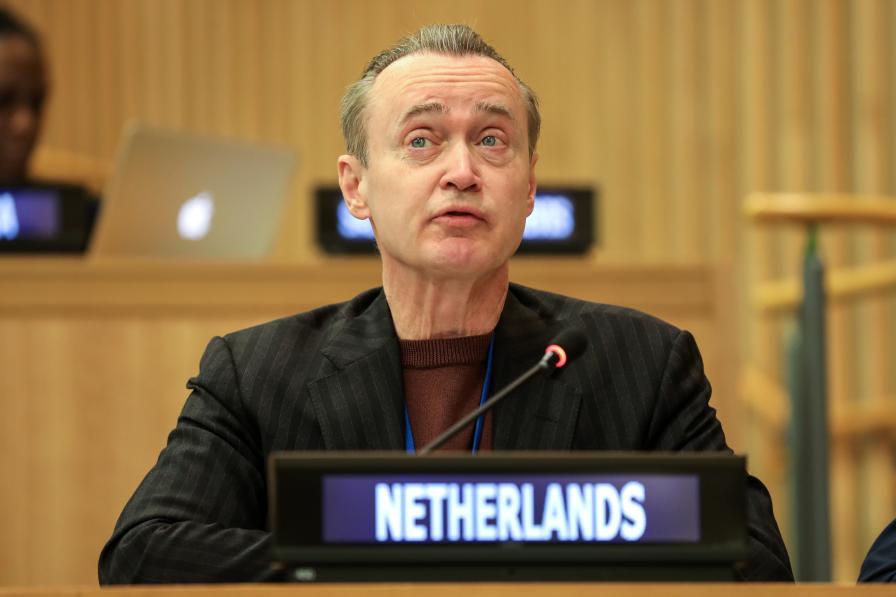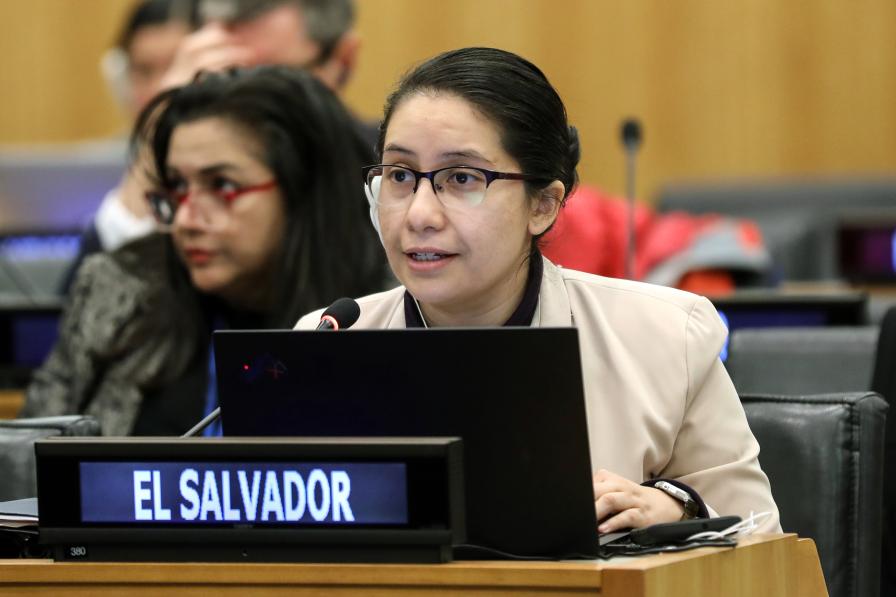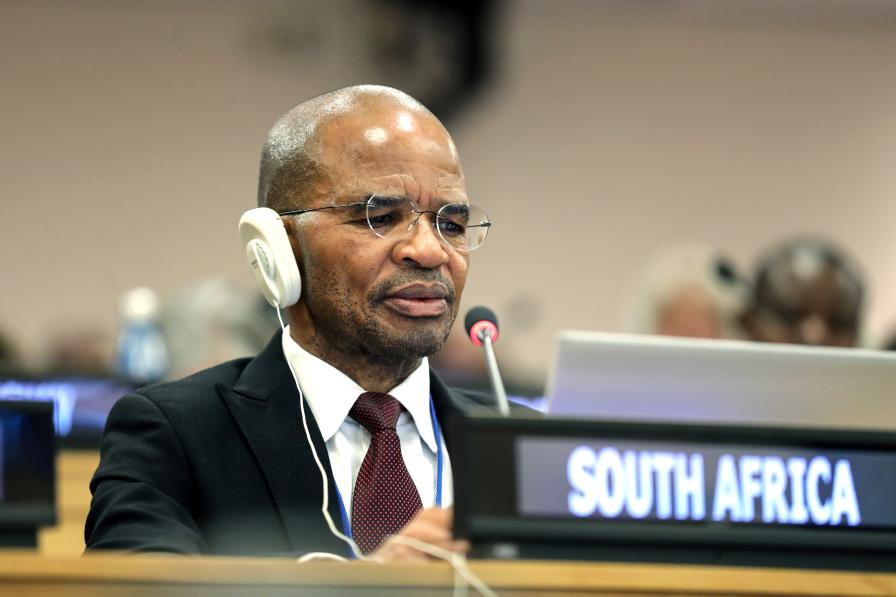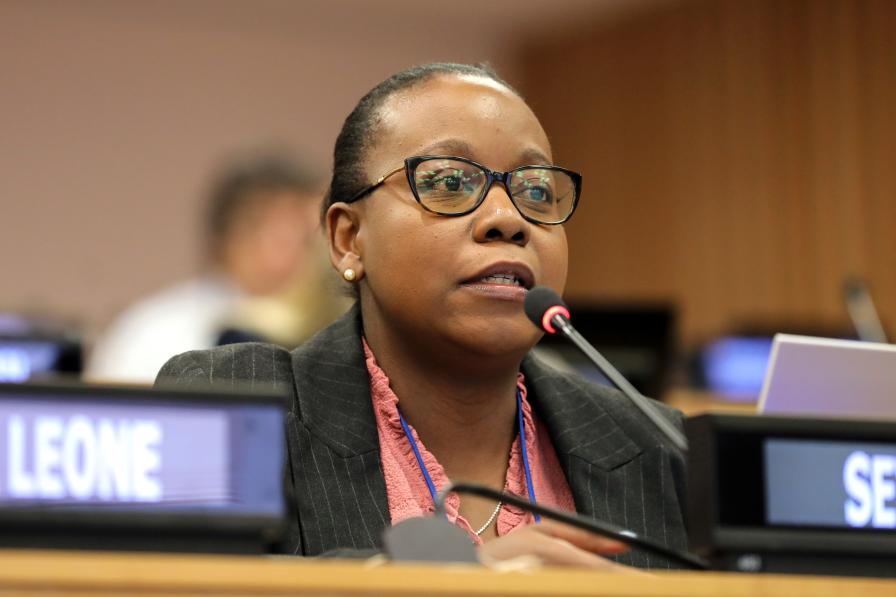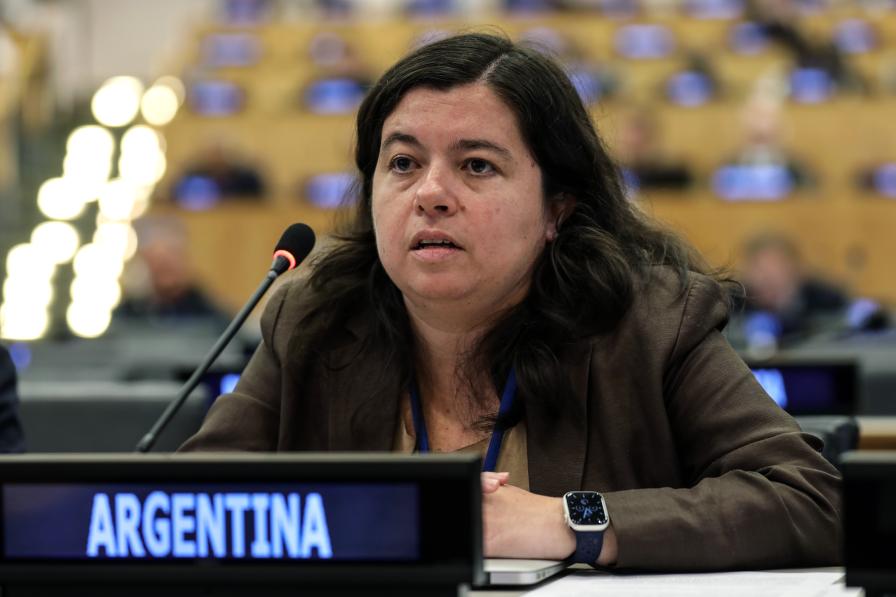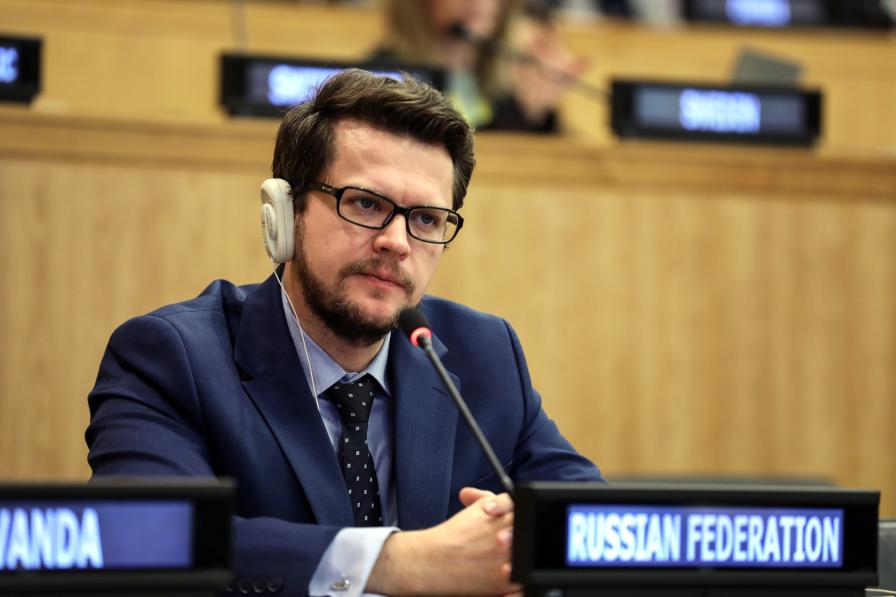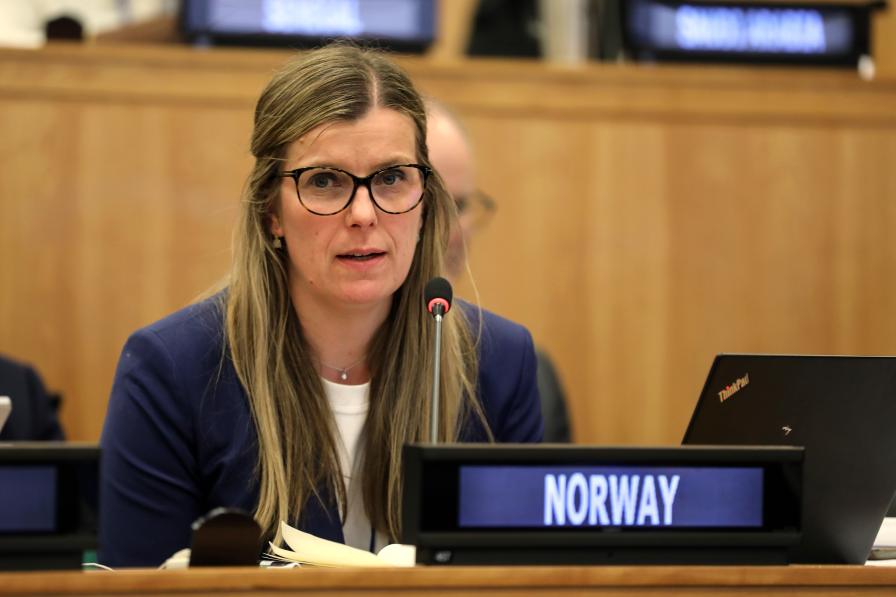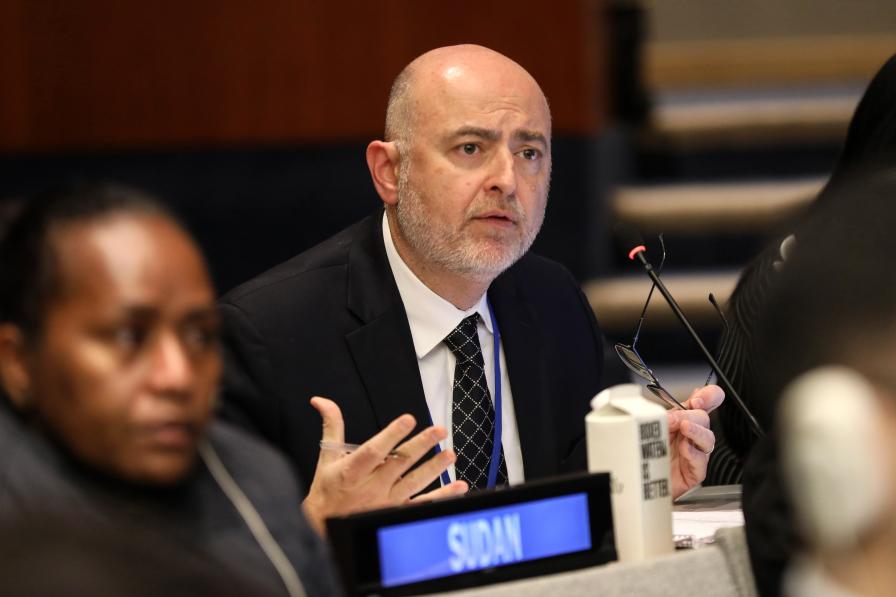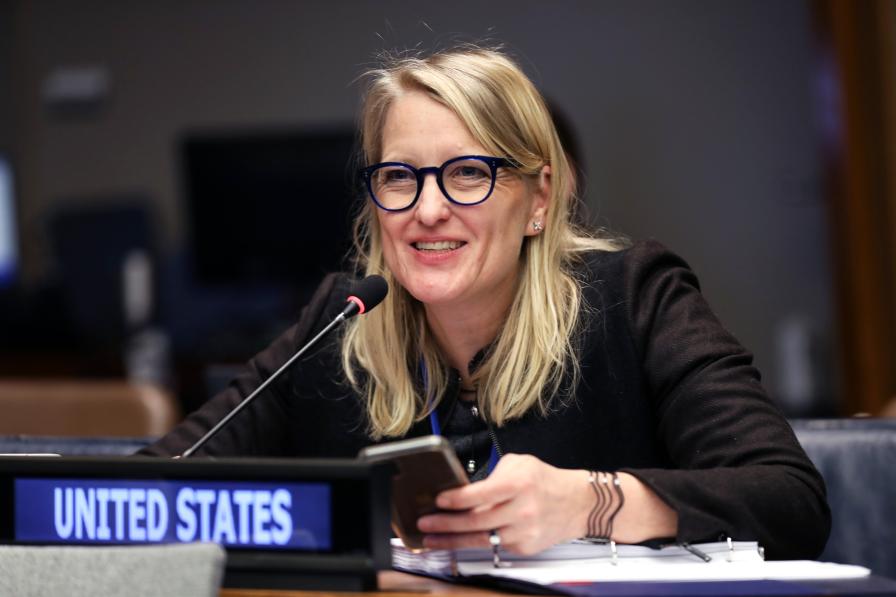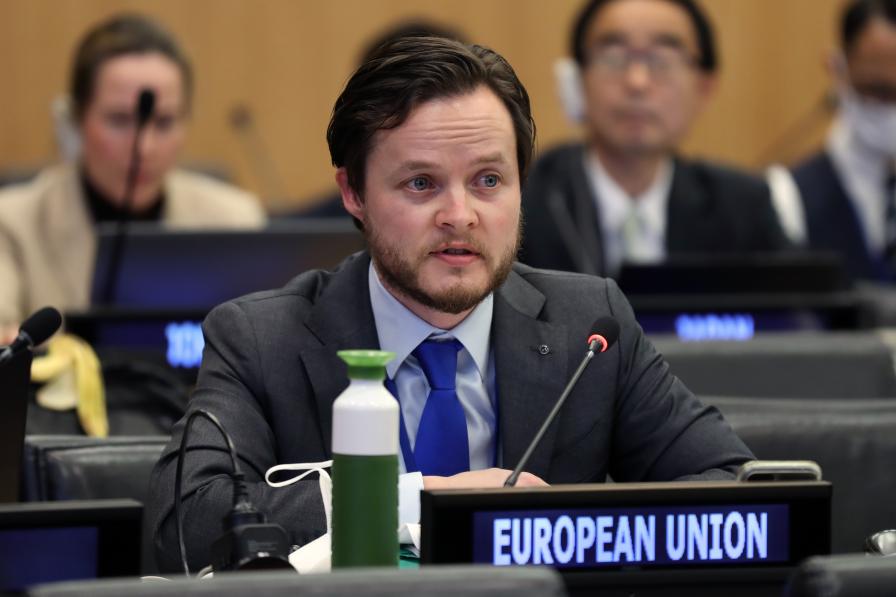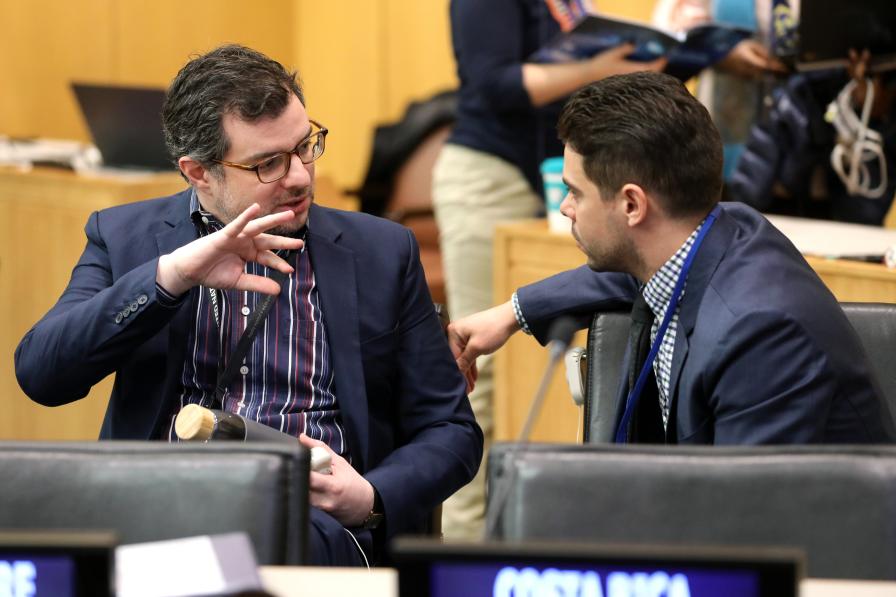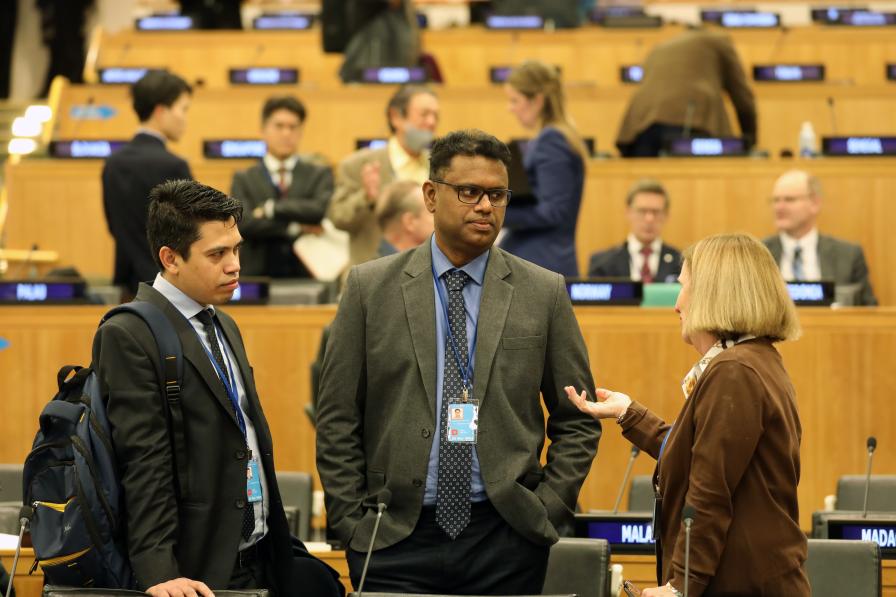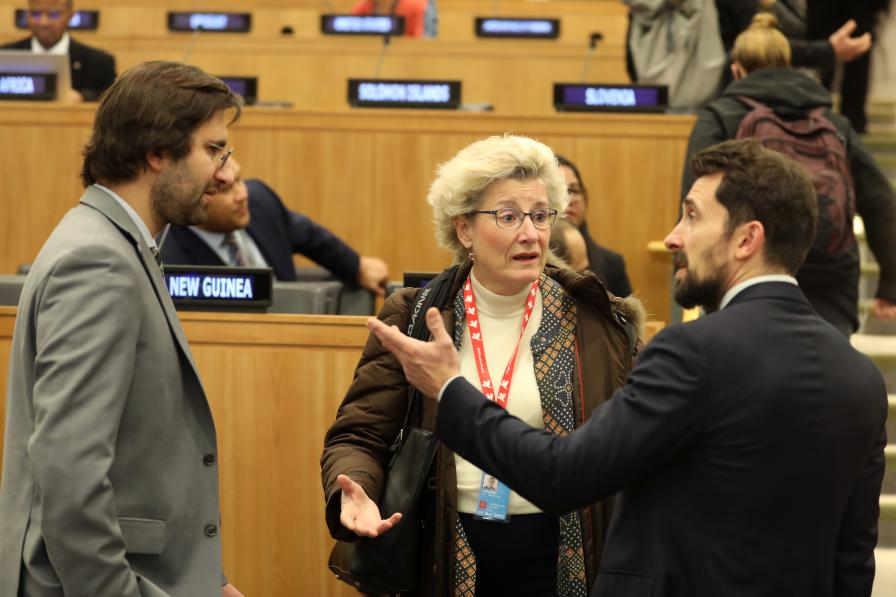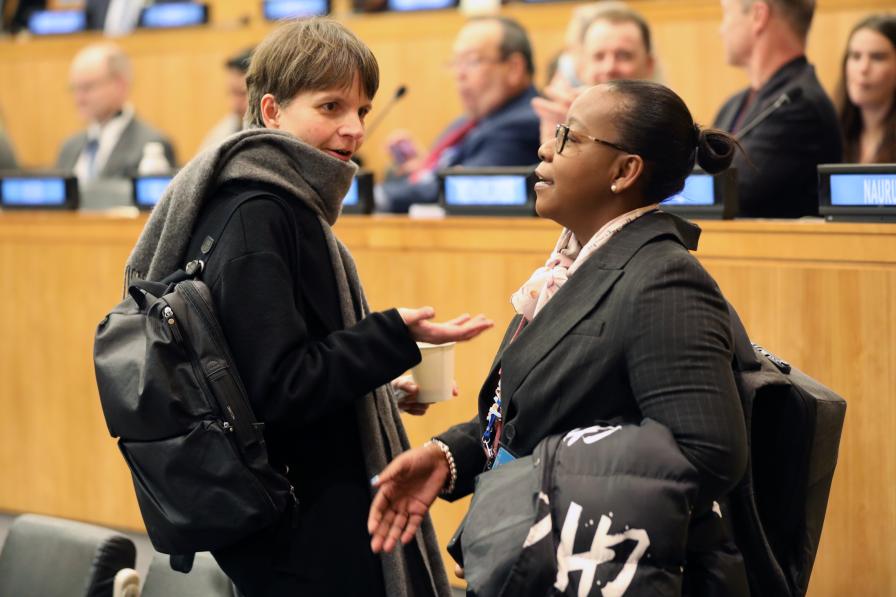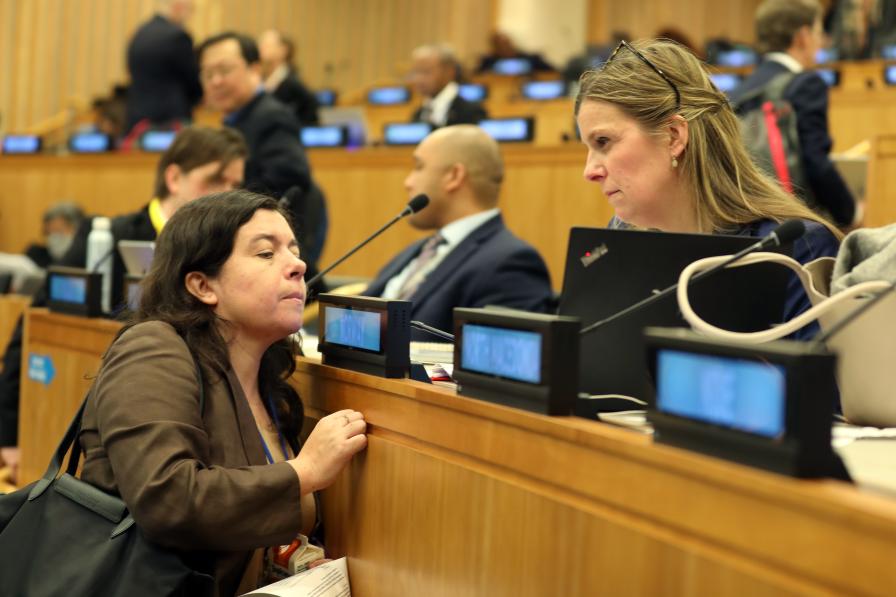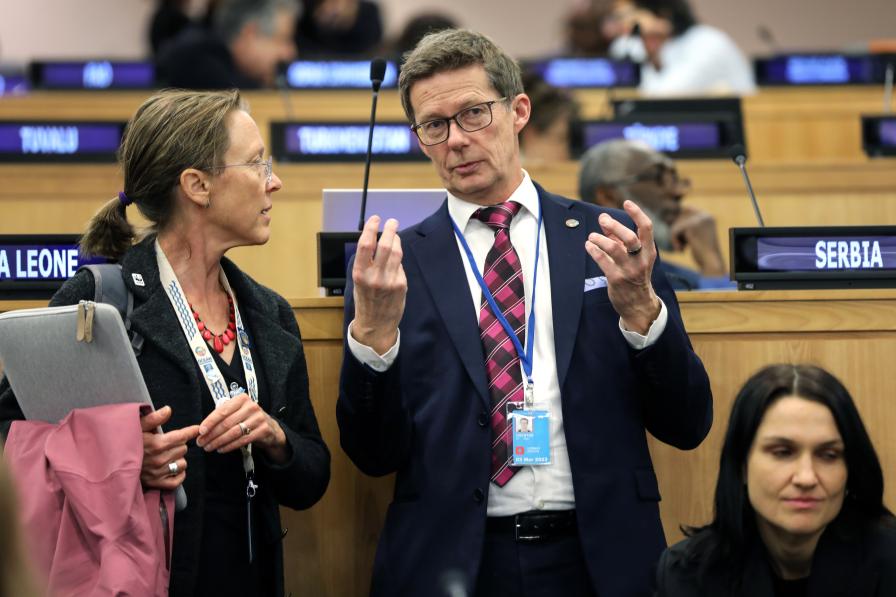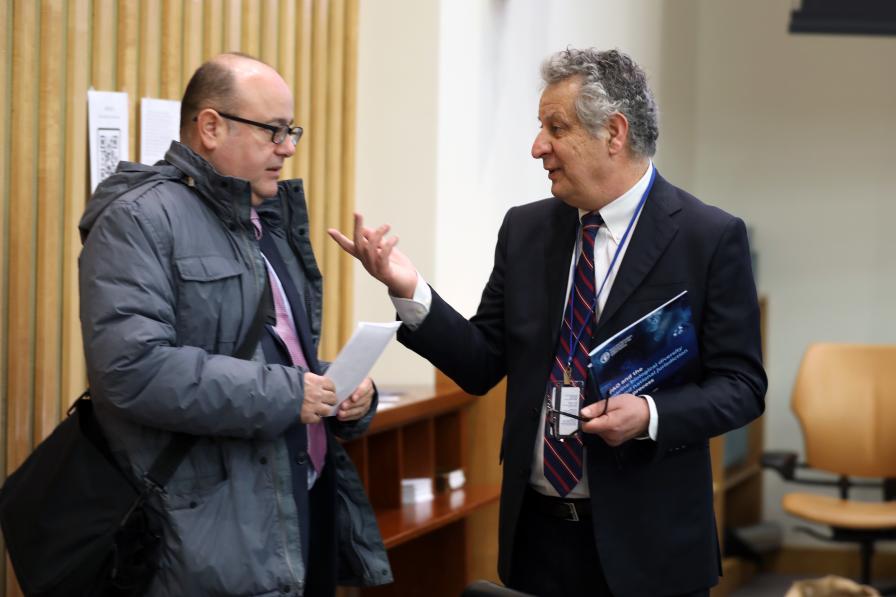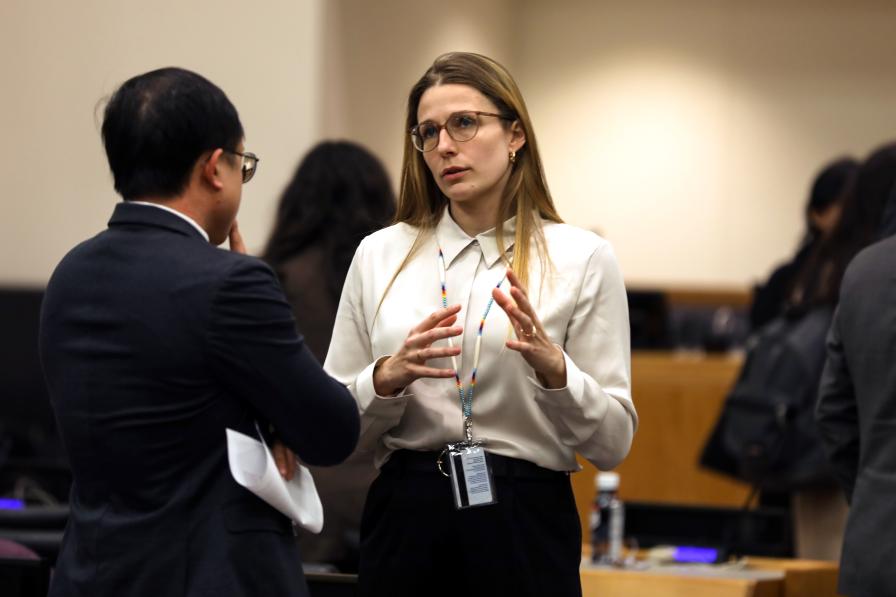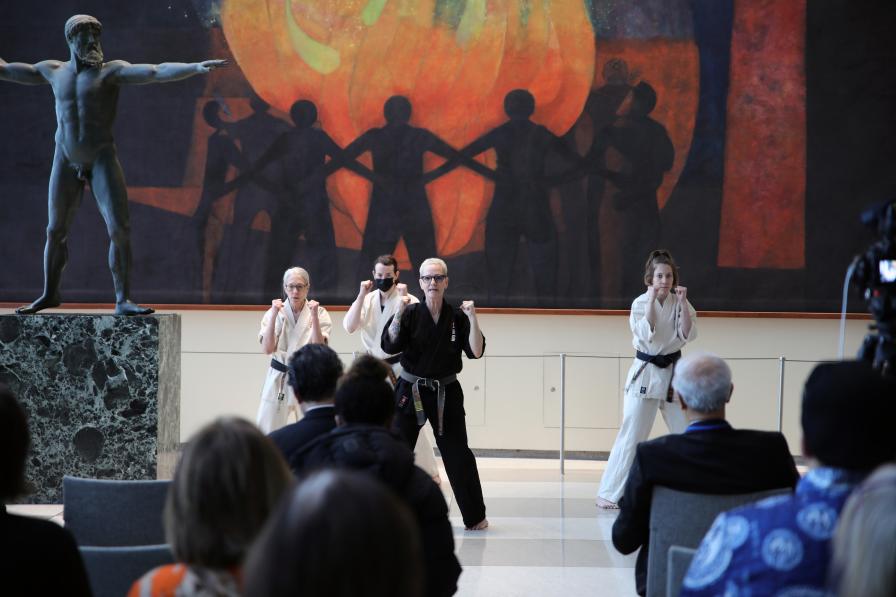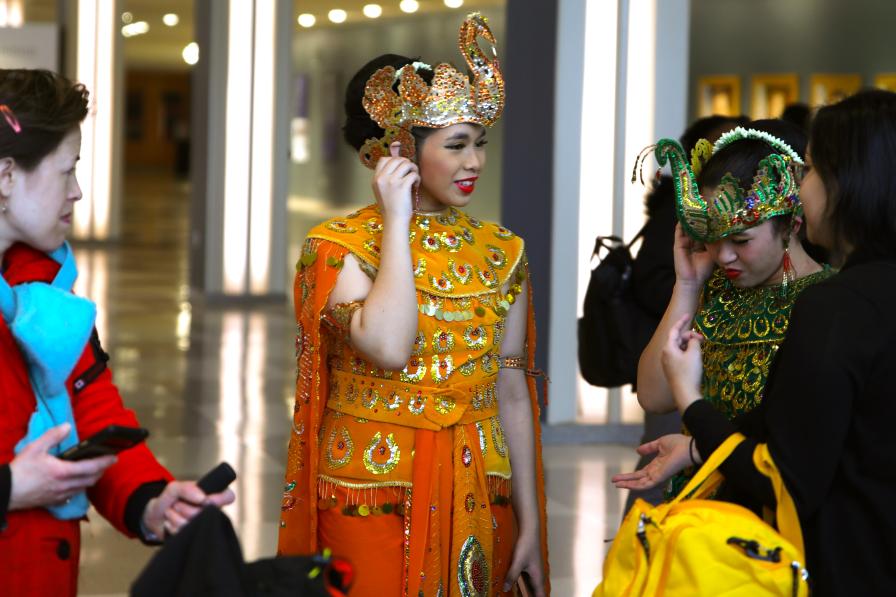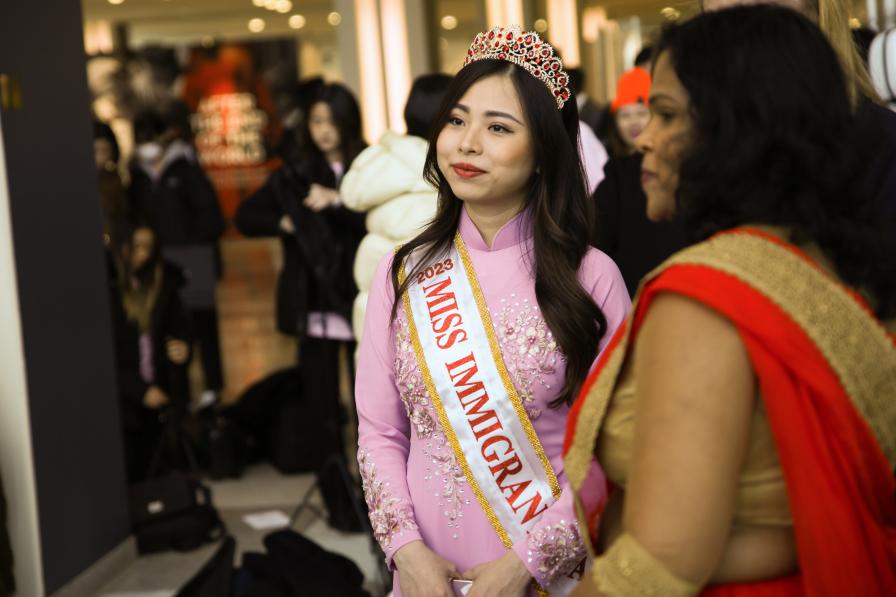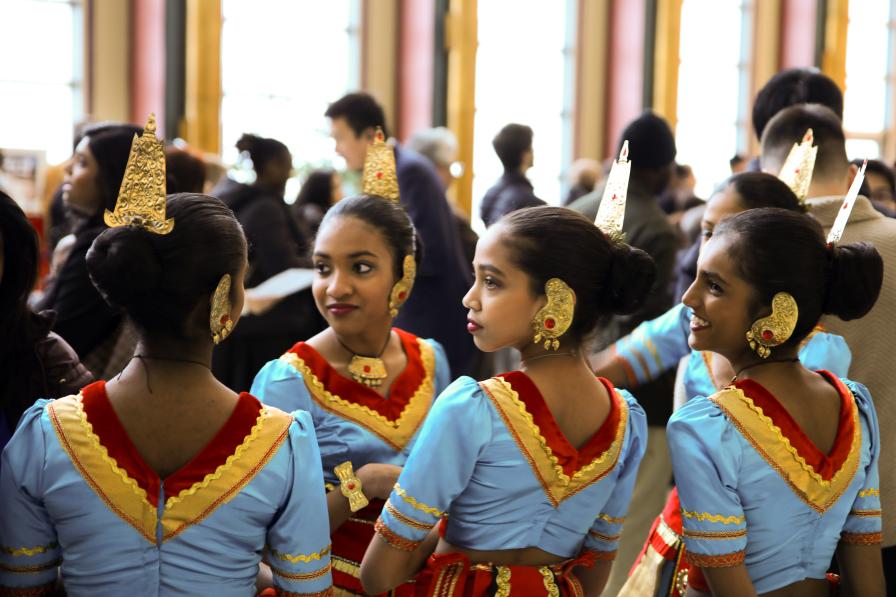In a brief morning stocktaking plenary, delegates welcomed the progress made over the last 24 hours at the resumed fifth session of the Intergovernmental Conference (IGC-5.2) on the conservation and sustainable use of marine biological diversity of areas beyond national jurisdiction (BBNJ). Under mounting pressure to clean the text, they spent much of the day in informal-informals, small group discussions, and consultations with IGC President Rena Lee, Singapore, to bridge remaining gaps.
Want to dive deeper? Read the full Earth Negotiations Bulletin daily report.
Three informal-informals convened during the day, with IGC members meeting to discuss provisions related: to area-based management tools (ABMTs), including marine protected areas (MPAs); environmental impact assessments (EIAs); and cross-cutting issues, specifically related to the general provisions of the new treaty.
On general provisions, delegations made another attempt to make progress on the principles and approaches which will govern the new treaty. Although some asserted that most countries support the inclusion of the principle of the common heritage of humankind as a stand-alone principle, others opposed its inclusion. A few called for the reinsertion of the freedom of the high seas, to “balance the text.” A small group met in the afternoon to continue discussions on these and other related issues.
On ABMTs, delegates addressed objection procedures, discussing how restrictive grounds for an opt-out provision should be. Some suggested restructuring and consolidating the provisions on the steps a party should take following the objection process. They also heard a progress report on discussions related to the provision on emergency measures. The new proposal includes text on: the Conference of the Parties (COP) taking the decision; a possible reference to the application of precaution; and a further explanation on the expiration of the measures and the development of guidelines.
Among other items related to EIAs, delegations addressed the EIA process, making some progress on text related to the screening, scoping, and impact assessment and evaluation stages of the process. On scoping, delegates were unable to agree on whether the scope of an EIA also includes social, economic, and cultural impacts, but made progress in their considerations on whether the scoping exercise would benefit from comments from both relevant stakeholders and the general public. The options on whether decision making is up to the party authorizing the activity or the COP remain in brackets.
Small group discussions occurred throughout the day, with delegates addressing outstanding provisions on issues related to: marine genetic resources (MGRs), including questions of benefit-sharing; EIAs; capacity building and the transfer of marine technology (CB&TT); and cross-cutting issues. Discussions will continue on Friday in informal-informal and small-group settings.
Delegates met in the afternoon and into the evening in consultations with IGC President Rena Lee.
